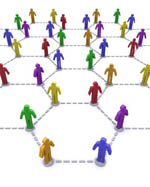Syntagma square is the most central place in Athens, just in front of the Greek parliament.  Actually syntagma in Greek language means constitution, the very book of democratic principles that form our republic. Today I was impressed by a facebook event called “Erasmus Freeze in Syntagma”. It is about an open invitation to freeze, stop moving and doing anything, at syntagma square on a given time, initiated by a group of Erasmus students at Athens.
Actually syntagma in Greek language means constitution, the very book of democratic principles that form our republic. Today I was impressed by a facebook event called “Erasmus Freeze in Syntagma”. It is about an open invitation to freeze, stop moving and doing anything, at syntagma square on a given time, initiated by a group of Erasmus students at Athens.
The facebook event and the corresponding public invitation to participate is accompanied by a web link to youtube showing a similar event held at New York (http://fr.youtube.com/watch?v=jwMj3PJDxuo&feature=related). It was very funny and simultaneously persuading to participate. In addition to this, on the specific event’s page there is a passage explaining the rationale of the movement and prompting to join as a reaction to the constantly increasing running in our modern lives. The fact is that in contemporary enormously sized cities we are all running all the time even if there in nothing to catch, with no specific logical reason.
This constant running is a source of anxiety feeding a vicious circle and leading to a substantial deterioration of living quality. However, what is really impressive is that the new technology mediated virtual social environment constructed at cyberspace offers great opportunities for active civilian participation and citizen initiated movements. Social internet and web 2.0 technologies are facilitating the initiation of such movements by providing the suitable interface, the forum to communicate and organize successful social movements.
Ancient Greece was the first place where democracy emerged in cities-states like Athens in the pure form of direct democracy. All the citizens were voting and participating in taking decisions. Direct democracy, a democracy without representatives, maybe is returning back to its birthplace through European students and citizens at Erasmus Freeze event at Syntagma square. Join the freeze:



